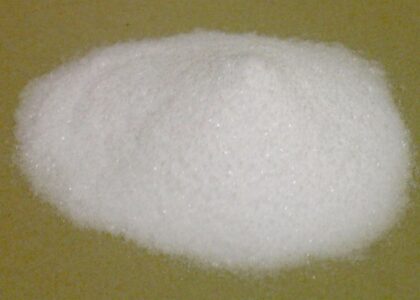The evolving packaging market in the food and beverages industry has led packaging manufacturers to develop innovative and aesthetic solutions. Disposable cups, including paper, plastic, and foam cups, have gained prominence in the global food packaging market due to their economy and easy availability. Foam cups, in particular, are favored for their ability to keep beverages at the desired serving temperature for extended periods, making them suitable for both hot and cold drinks.
However, the adoption of foam cups has been declining due to their non-biodegradable nature and difficulty in recycling. As environmental concerns grow, eco-friendly paper and fiber-based cups are replacing foam cups in food services and retail stores. Major food service providers in the United States, such as Dunkin’ Donuts and McDonald’s, have committed to eliminating the use of foam cups by 2020. Moreover, some cities, like New York, have already banned the use of foam cups and containers made from expanded polystyrene (EPS).
Key players in the foam cups market are actively engaging in research and development efforts to overcome the drawbacks of foam cups and provide more eco-friendly solutions to consumers.
Comparison between paper and foam cups highlights the environmental concerns associated with foam cups due to the presence of harmful chemicals like benzene, which can be harmful to animals. In contrast, paper cups coated with a thin layer of polyethylene are considered less toxic when accidentally consumed. The recyclability and eco-friendliness of paper cups are causing foam cups to lose market share in the global disposable cups market.
Discover Vendor Details – Request Sample Report @ https://www.futuremarketinsights.com/reports/sample/rep-gb-8762
However, the manufacturing process of foam cups requires fewer resources, including water, energy, and raw materials like trees, compared to paper cups. Biodegradable and compostable cups are emerging as potential alternatives to foam cups, offering a more environmentally friendly option.
Key Takeaways:
- The food and beverages industry is witnessing a rise in the use of disposable cups, including foam cups, due to their convenience and availability.
- Environmental concerns and regulations are driving the shift towards eco-friendly alternatives like paper and fiber-based cups, reducing the market share of foam cups.
- Major food service providers and cities are taking initiatives to phase out foam cups and adopt more sustainable packaging solutions.
- The foam cups market is facing challenges due to non-biodegradability and limited recyclability, leading to increased focus on research and development for eco-friendly alternatives
Paper vs. Foam Cups
Foam cups contain harmful chemicals such as benzene, which is harmful to animals. The paper cups having only a thin coating of polyethylene and aren’t toxic when consumed on accident. The foam cups are not eco-friendly and less recyclable as compared to the paper cups which reduce the market share of foam cups in global disposable cups market.
On the other side, the manufacturing of foam cup requires fewer resources as compared to the paper cups in terms of water, energy, cutting trees and others. The biodegradable or compostable cups are also attributed to be a worthy environmental alternative for foam cups.
Expand with Confidence – Ask for Your Custom Report @ https://www.futuremarketinsights.com/customization-available/rep-gb-8762
Global Foam Cups Market: Key Players
Some of the key players operating in global foam cups market are as follows:
- Genpak, LLC
- Master Containers, Inc.
- Dart Container Corporation
- Huhtamaki Oyj
- CKF Inc
- Dixie Consumer Products LLC
- Megafoam Containers Enterprise Sdn Bhd
- Pactiv LLC
- Lollicup USA, Inc.
- Letica Corporation
- Eco-Products, Inc.
Global Foam Cups Market: Segmentation
The global foam cups market is segmented on the basis of capacity, cup type, sales channel, and end-user as follows:
On the basis of size, the global foam cups market has been segmented into:
- Up to 10 Oz
- 10 to 16 Oz
- 16 to 20 Oz
- 20 to 32 Oz
- More than 32 Oz
On the basis of cup type, the global foam cups market has been segmented into:
- Hot cup type
- Cold cup type
On the basis of the sales channel, the global foam cups market has been segmented into:
- Supermarket/Hypermarket
- Departmental/Speciality/Discount Stores
- Distributors
- Online sales
On the basis of end-user, the global foam cups market has been segmented into:
- Foodservice
- Institutional
- Household
- Catering services
Unlock Savings – Claim Your Discount on Reports @ https://www.futuremarketinsights.com/request-discount/rep-gb-8762
About FMI
Future Market Insights, Inc. (ESOMAR certified, Stevie Award – recipient market research organization and a member of Greater New York Chamber of Commerce) provides in-depth insights into governing factors elevating the demand in the market. It discloses opportunities that will favor the market growth in various segments on the basis of Source, Application, Sales Channel and End Use over the next 10-years.
Contact Us:
Future Market Insights Inc.
Christiana Corporate, 200 Continental Drive,
Suite 401, Newark, Delaware – 19713, USA
T: +1-845-579-5705
For Sales Enquiries: sales@futuremarketinsights.com
LinkedIn| Twitter| Blogs




